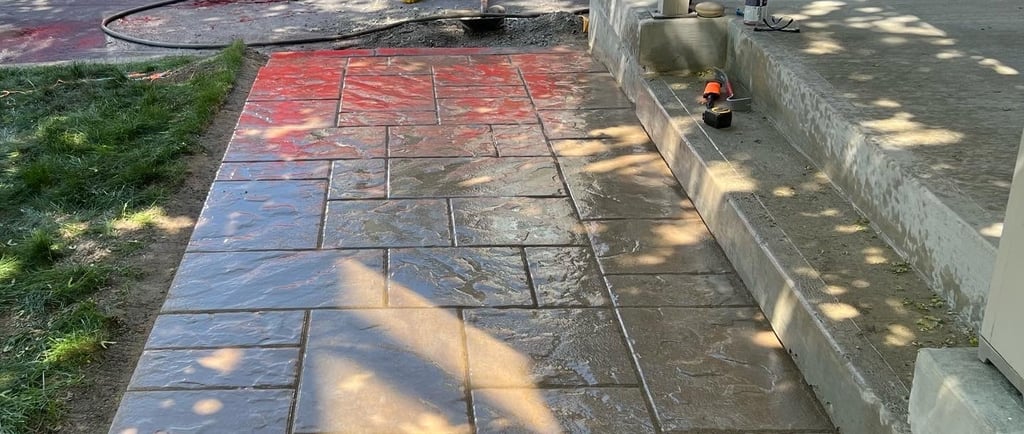Why are interlock pavers better than concrete?
Interlock pavers offer several advantages over traditional concrete slabs, making them a preferred choice for many landscaping and paving projects. Here are some of the key reasons why interlock pavers are often considered better than concrete: 1. Aesthetics Variety: Interlock pavers come in a wide range of colors, shapes, sizes, and textures, allowing for unique and customizable designs that can enhance the curb appeal of any property. Patterns: The ability to mix and match pavers enables the creation of intricate patterns and designs not achievable with poured concrete. 2. Durability and Flexibility: Crack Resistance: Unlike a solid concrete slab that can crack over time due to ground movement, temperature changes, or heavy loads, interlock pavers are individual units that can adjust to the environment, reducing the risk of cracking. Strength: Pavers are designed to withstand heavy loads and traffic, making them suitable for driveways and high traffic areas. 3. Repair and Maintenance: Ease of Repair: If damage or staining occurs, individual pavers can be easily removed and replaced without affecting the overall appearance or integrity of the paved area. Low Maintenance: Interlock pavers require less maintenance compared to concrete slabs. Regular sweeping and occasional rinsing are generally sufficient to keep them looking good. 4. Permeability: Water Drainage: Permeable interlocking pavers are available that allow water to percolate through the surface and into the ground below, reducing runoff and promoting natural water recharge. This feature can help in managing stormwater and reducing the need for drainage systems. 5. Installation and Accessibility: Installation: While both concrete slabs and pavers require a prepared base, the installation of pavers can be more forgiving of minor errors due to their individual piece nature. Immediate Use: Paver installations can be used immediately after completion, unlike concrete, which requires curing time. 6. Environmental Impact: Sustainable Options: Some pavers are made from recycled materials, making them a more environmentally friendly option. The permeable varieties also contribute to reduced runoff and better water management. 7. Long-Term Value: Cost-Effectiveness: Although the initial cost of pavers can be higher than concrete, their durability, ease of repair, and timeless appearance can make them more cost-effective in the long term. While interlock pavers offer many advantages, the best choice between pavers and concrete will depend on the specific requirements of your project, including budget, aesthetic preferences, and functional needs.
INTERLOCK
2/10/20241 min read




